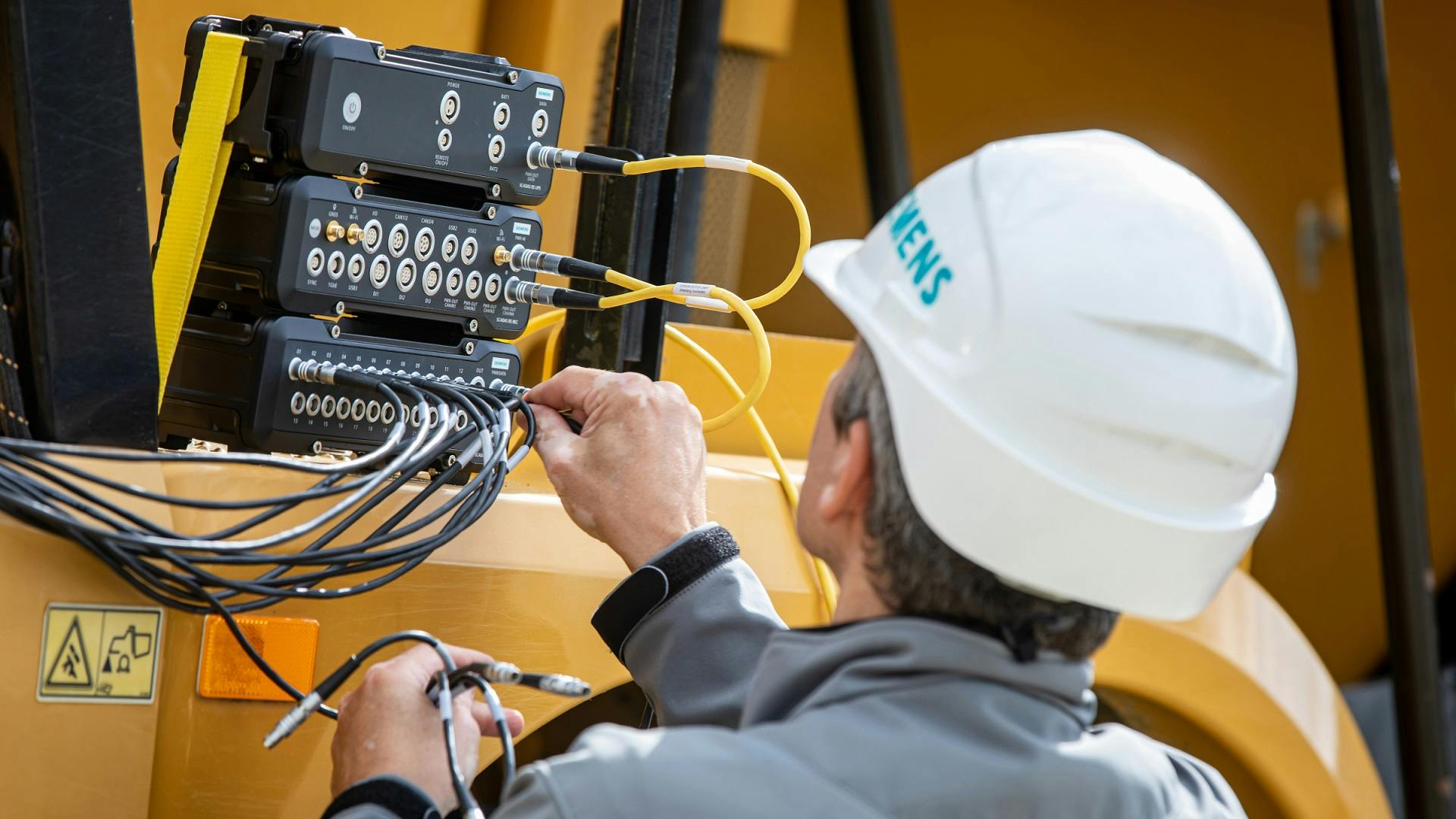With machines running in some of the harshest environments in the world, heavy equipment is arguably the most demanding type of vehicle to design from the perspectives of structural integrity and durability. Fatigue and cyclic load testing for heavy equipment is important, as one of the primary reasons for component failure is fatigue accumulated over the long run.
Hear from Siemens business development managers Safak Has and Sebastian Flock as they present innovative simulation solutions for heavy equipment structural integrity and durability engineering.
Predict mechanical fatigue early in heavy equipment design.
Durability assessments allow engineers to predict mechanical fatigue early in heavy equipment design, as well as enabling significant acceleration of fatigue tests. 3D graphical visualizations identify hotspots, illustrating how stress levels on specific points of the component vary over time.Discover how you can develop the capability to predict design flaws far earlier than had previously been possible.
Structural integrity analysis
Structural integrity analysis is the simulation starting point. When a component assembly is being tested, the best 3D simulation solutions associate the computer-aided design (CAD) and CAE tools. Testing with simulation is the key as it enables you to measure the immeasurable. By tightly bonding the test and simulation stages in a real-time approach, heavy equipment manufacturers can reduce uncertainties in the model where testing and simulation work together in a constant loop.
Materials fatigue data
This webinar will cover the benefits and additional engineering insight that this approach provides and consider next steps in the creation of a full digital twin for heavy equipment design. Don’t miss the opportunity to learn from our experts and get insight on how to:
- Acquire real-world machine loads under real usage
- Gain a precise understanding of load
- Take into account local customer and market habits, and machine usage loading
- Predict virtual machine loads long before the prototype is available
- Predict the impact of material, geometry and welding on strength & materials fatigue
- Balance conflicting targets such as weight, and strength and durability performance
Register today for the webinar to learn how to bring high-quality new products to market faster and at lower costs.
À propos des intervenants

Sebastian Flock
Business Development Manager for Heavy Equipment, Automotive and Transportation Simulation

Şafak Has
Spécialiste des essais pour l'automobile, les transports et les équipements lourds
Şafak travaillait précédemment chez Ford Motor Company, sur les tests d'une large gamme de véhicules, des voitures particulières aux camions de chantier. Ses domaines d'expertise sont notamment les systèmes d'acquisition de données et l'analyse des données dans le contexte des tests de NVH et de durabilité. Şafak est titulaire d'un Bachelor en génie mécanique de l'Université technique de Yildiz, à Istanbul, en Turquie.


